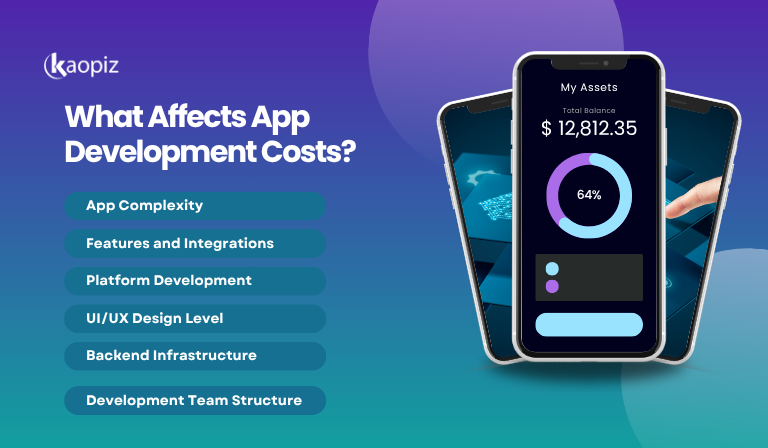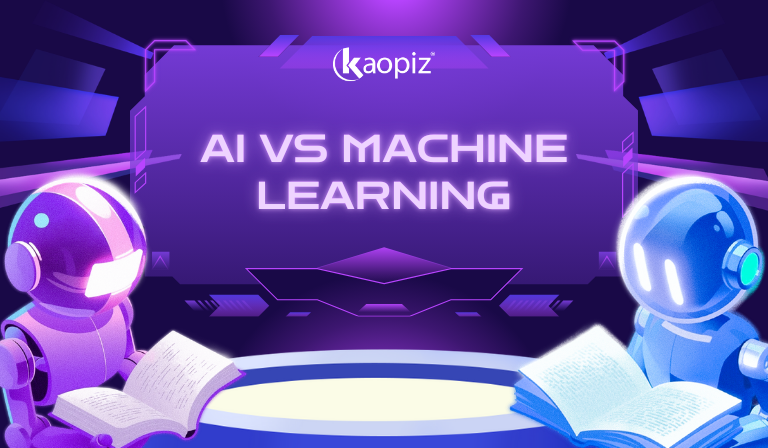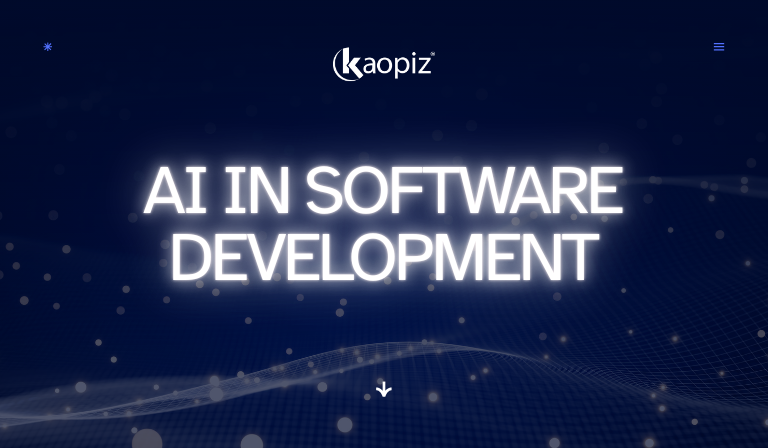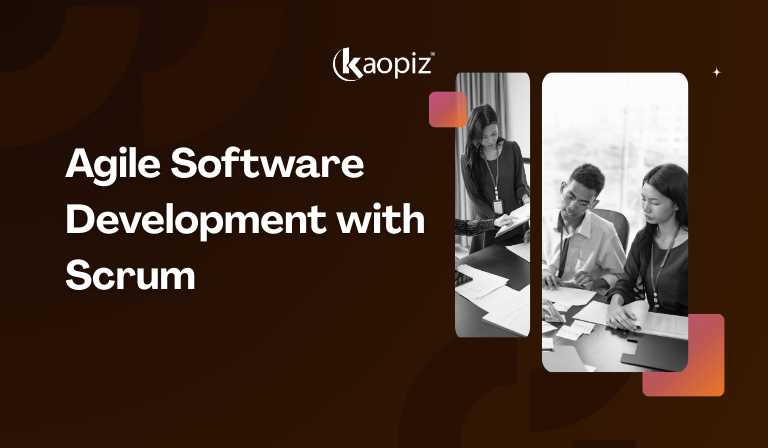App Development Cost in Singapore: Save Smart with Local & Offshore Options [2025 Guide]
The global mobile app market is booming, with its value projected to surpass $613 billion in 2025. In Singapore — a regional tech hub with a strong startup ecosystem and digital-savvy population — the demand for high-quality mobile apps continues to grow across industries like fintech, healthcare, logistics, and education.
Whether you’re a startup founder building your MVP or an enterprise launching a new digital product, one question always comes first: How much does it cost to build a mobile app in Singapore? In this guide, we break down app development cost in Singapore for 2025, compare local vs offshore options, highlight hidden costs, and show you how to build smart and save smarter — without compromising on quality.
Table of Contents
- Average Mobile App Development Cost in Singapore
- Singapore vs Offshore App Development Cost
- What Affects App Development Costs?
- How to Reduce Your App Development Cost in Singapore
- How to Choose the Right App Development Partner in Singapore?
- Why Choose Kaopiz as Your App Development Partner?
- Conclusion
- FAQs
Average Mobile App Development Cost in Singapore
App development costs in Singapore in 2025 typically range from SGD 10,000 to 200,000+, depending on the project scope. A basic app with limited features may fall on the lower end, while complex, feature-rich solutions like marketplaces or super apps require larger budgets.

The reason costs vary so much lies in key factors such as feature complexity, design requirements, platform choices (iOS, Android, or both), and the development model—whether you hire a local agency, freelancers, or an offshore team. Ongoing costs like maintenance, server hosting, and app store fees also add to the total investment.
For businesses planning app development, a realistic starting budget would be around SGD 10,000–30,000 for a basic MVP, SGD 30,000–80,000 for a standard app, and SGD 80,000+ for enterprise-grade platforms. Working with the right partner can help optimize costs while ensuring quality.
Here’s a detailed breakdown of app development cost in Singapore — let’s explore what you need to know!
Cost Estimates by Complexity
App development costs in Singapore vary widely based on how complex the app is, both in terms of functionality and technical architecture. Below is a general breakdown of cost, development time, and examples for each level:
| Complexity Level | Estimated Cost (SGD) | Development Time | Example Use Case |
|---|---|---|---|
| Simple App | 10,000 – 30,000 | 1–2 months | Basic to-do list app, event check-in app |
| Medium App | 30,000 – 80,000 | 2–4 months | E-commerce platform, booking app |
| Complex App | 80,000 – 200,000+ | 4–6+ months | Super app (e.g., Grab), multi-service marketplace |
The more features, user roles, and third-party integrations your app requires, the higher the cost and development time.
Cost Estimates by App Types
App development cost in Singapore also varies based on the technical approach you choose. Each type comes with its own advantages, limitations, and ideal use cases. Then, how much does an app cost based on app types? Let’s find out:
| App Type | Estimated Cost (SGD) | Best For |
|---|---|---|
| Native App | 60,000 – 300,000+ | Maximum performance, large-scale apps, deep device integration |
| Web App (PWA) | 80,000 – 300,000+ | Content-heavy platforms, broad accessibility via browser |
| Hybrid App | 54,000 – 200,000+ | Faster launch with moderate native capabilities |
| Cross-Platform App | 54,000 – 300,000+ | Efficient builds for both iOS & Android using a shared codebase |
| Low-Code/No-Code App | 2,000 – 5,000 | Prototyping, internal tools, MVPs with basic logic |
Cost Estimates by App Categories
Different apps come with different functional requirements, which directly affect the development cost. Here are the costs of developing an app in Singapore based on common app categories:
| App Type | Estimated Cost (SGD) | Key Features |
|---|---|---|
| E-commerce App | 30,000 – 80,000 | Product catalog, cart, payments, user accounts, admin dashboard |
| Booking App | 25,000 – 70,000 | Scheduling, availability calendar, payments, notifications |
| Marketplace App | 50,000 – 150,000+ | Buyer/seller roles, messaging, order management, transaction system |
| On-demand Services | 40,000 – 120,000+ | Real-time tracking, service matching, geolocation, in-app payments |
| LMS/Education App | 30,000 – 100,000+ | Video content, progress tracking, quizzes, user management |
| Gaming App | 50,000 – 200,000+ | Game mechanics, animations, multiplayer integration, in-app purchases |
Hidden & Ongoing Costs to Consider
Beyond initial development, mobile apps require continuous investment to ensure stability, performance, and scalability. Here is the key ongoing cost of app development in Singapore to keep in mind when budgeting:
- App maintenance: Most apps require regular maintenance to fix bugs, update libraries, and adapt to OS changes. Annual maintenance typically costs 15–20% of the original development budget.
- Scaling & Feature Enhancements: As your user base grows or your business evolves, you may need to add new features, optimize performance, or refactor code. These improvements are billed separately and should be budgeted over time.
- App Store/Play Store Submission & Fees: Publishing apps comes with fees: $99/year for Apple App Store, and $25 one-time for Google Play. You’ll also need to manage app versioning and compliance with platform policies.
- Cloud Hosting & Server Costs: Depending on the app’s backend infrastructure, expect to pay monthly for cloud services like AWS, Google Cloud, or Firebase. Costs often start from SGD 30–200/month for small to mid-sized apps.
- Security Compliance & Testing: Apps handling sensitive data (e.g., in fintech, healthcare, or e-commerce) require regular security testing, compliance audits (e.g., PDPA in Singapore), and updates to address vulnerabilities.
Singapore vs Offshore App Development Cost
When planning an app, one of the biggest budget decisions is whether to work with a local development team in Singapore or an offshore team from a trusted partner in countries like Vietnam, India, or Eastern Europe.
Hourly Rates Comparison
The cost of developing an app in Singapore can vary greatly depending on whether you hire a local team or outsource the project. When comparing app developer Singapore cost with offshore development rates, the difference is significant, especially for startups or businesses with limited budgets.
Here’s a quick comparison of local vs offshore hourly rates to help you estimate your outsource app development cost more accurately.
| Team Type | Average Hourly Rate (SGD) |
|---|---|
| Local Freelancers | 80 – 120/hour |
| Singapore-Based Agencies | 120 – 200/hour |
| Offshore Developers (e.g., Vietnam) | 25 – 60/hour |
Hiring local developers or agencies offers proximity and in-person collaboration but comes with higher costs. Offshore teams like Kaopiz provide similar quality at significantly lower rates—ideal for startups or growing businesses looking to optimize their budget.
Quality, Support, and Turnaround Trade-offs
When comparing Singapore-based and offshore development teams, it’s important to consider not just cost but also the trade-offs in quality, support, and delivery speed.
While local teams in Singapore offer in-person collaboration and familiarity with local standards, offshore teams—especially from Vietnam—now deliver comparable quality at a lower cost, often backed by certifications like ISO 27001.
In terms of support, local agencies have the advantage of proximity, but offshore providers like Kaopiz – a trusted IT outsourcing company offer dedicated bilingual PMs and BrSEs, ensuring smooth, time zone-aligned communication.
Offshore teams also tend to deliver faster by scaling resources quickly, while smaller local teams may face timeline constraints due to limited capacity.
When to Go Local vs Offshore
Choosing between a local and offshore development team depends on your priorities, project scope, and budget.
Go Local When:
- You need face-to-face collaboration or on-site meetings
- Your project involves strict compliance with data residency regulations
- Budget is flexible, and you prefer a fully onshore experience
Go Offshore When:
- You want to reduce costs without compromising quality
- You’re building an MVP or scaling quickly
- You need access to a larger talent pool with specialized skills
- You’re open to remote collaboration with structured communication
A hybrid model combines offshore development with local-style project management, giving you the best of both worlds.
What Affects App Development Costs?
If you’re planning to build an app, one of the first questions you’ll face is: How much to develop an app in Singapore? Understanding the key factors that influence app development cost is crucial for budgeting effectively. From feature complexity to the development approach you choose, each decision plays a major role in shaping your overall investment. Here’s what you should consider:

App Complexity
The complexity of your app is one of the biggest mobile app development cost drivers. A simple mobile app with basic functionality (like a calculator or to-do list) costs far less than a feature-rich app with user accounts, real-time updates, or multiple user roles. The more interactions, screens, and workflows you add, the more development time and cost it requires.
Features and Integrations
Every additional feature adds to your mobile app development cost in 2025. Common examples include:
- User login and registration
- Payment gateways (e.g., Stripe, PayPal)
- Chat or messaging functions
- Push notifications
- Maps and geolocation
- Third-party APIs (e.g., social login, eCommerce platforms)
Complex, custom-built features or deep system integrations will significantly increase the overall cost to build your app.
Platform (iOS/Android/Cross-platform)
The choice of platform also affects the app development Singapore price. Native apps—built separately for iOS and Android—tend to be more expensive due to the need for two codebases. In contrast, cross-platform development using frameworks like Flutter or React Native allows you to build both platforms with a shared codebase, reducing costs and speeding up development.
UI/UX Design Level
Design impacts not only how your app looks but also how much it costs. Basic UI with standard components is cost-effective, while a polished, highly customized interface with animations, transitions, and accessibility features takes more time and resources. Good design also improves user retention, so it’s worth the investment.
Backend Infrastructure
If your app needs a backend to manage user data, content, analytics, or admin panels, this will affect your mobile app development pricing. Using cloud platforms like AWS or Firebase can help reduce setup costs, but ongoing hosting and maintenance should be factored in. Building and securing APIs, databases, and server environments will also increase development time and cost.
Development Team Structure (Agency vs Freelancers vs In-house)
Who builds your app matters. Here’s how team structure impacts cost:
- Local agencies in Singapore offer high reliability but at a premium (SGD 80–150+/hour).
- Offshore teams (e.g., in Vietnam) can reduce costs by up to 60%, while still offering strong technical capabilities.
- Freelancers may offer lower rates but require more hands-on management and can pose continuity risks.
- In-house teams give you full control but come with long-term overhead (salaries, benefits, office space).
Choosing the right development team based on your budget, timeline, and technical requirements is key to cost-effective app delivery.
How to Reduce Your App Development Cost in Singapore
App development in Singapore can be a major investment, but there are smart strategies to reduce your cost without sacrificing quality.

Here are proven ways to keep your mobile app project efficient and budget-friendly:
- Use MVP Strategy: Start with a Minimum Viable Product that includes only essential features. This lets you launch quickly, test with real users, and avoid unnecessary functionality.
- Choose Cross-Platform Development: Frameworks like Flutter or React Native let you build both iOS and Android with one codebase—cutting down on development time, cost, and maintenance.
- Outsource Smartly: Offshore teams (like Kaopiz in Vietnam) can reduce development costs by up to 60%. Choose partners who offer strong communication, time zone alignment, and quality assurance.
- Avoid Feature Creep: Stick to must-have features. Every additional feature adds cost and complexity. Expand later based on real user feedback and product needs.
- Reuse Open-Source Components: Save time and budget by using proven open-source libraries for common app functions like login, forms, and navigation—no need to build everything from scratch.
How to Choose the Right App Development Partner in Singapore?
Choosing the right app development company is just as important as planning your features or setting your budget. The right partner will help you bring your vision to life—on time, within budget, and without unnecessary stress.
Factors to Consider When Choosing a Development Partner
To make the right decision, consider the following:
- Experience & Portfolio: Look for a proven track record across industries and app types. Review case studies and live apps.
- Technical Expertise: Ensure the team is skilled in the platforms, frameworks, and technologies your app needs (e.g., Flutter, AWS, AI integration).
- Communication & Transparency: A good partner provides clear timelines, progress reports, and fast responses.
- Cost vs. Value: Cheapest isn’t always the best. Choose a team that balances price with quality, process, and support.
- Post-Launch Support: Maintenance, updates, and scaling are just as important as development. Ask about ongoing support models.
- Security & Compliance: Ensure the team follows data protection best practices (e.g., PDPA compliance, secure coding, NDA).
How to Find a Reliable Development Team in Singapore
If you’re looking for a trusted app development partner, start with:
- Local Tech Directories: Check platforms like Clutch, GoodFirms, or Tech in Asia.
- Referrals: Ask other businesses or founders in your network for recommendations.
- Startup Communities: Explore local tech meetups, incubators, or accelerators like BLOCK71 or SGInnovate.
- Offshore-Hybrid Firms: Consider established offshore teams (like Kaopiz) with Singapore experience and local-facing support, offering the best of cost-efficiency and collaboration.
A reliable partner will not just write code—they’ll guide your app’s success from concept to launch and beyond. Choose a team that understands your goals, communicates clearly, and delivers with accountability.
Why Choose Kaopiz as Your App Development Partner?
With a strong reputation for quality, reliability, and scalability, Kaopiz is a trusted apps development company for businesses in Singapore and beyond.

Whether you’re a startup building an MVP or an enterprise developing a complex digital platform, Kaopiz offers technical expertise and flexible delivery models to bring your vision to life at affordable app development rates.
- Proven Track Record and Global Clients:With 500+ successful projects and a team of 300+ skilled engineers, we deliver high-quality mobile and web apps for clients across Singapore, Japan, the US, and Europe (with 98% satisfaction rate).
- Cost-Efficiency Without Compromising Quality: By combining Vietnam’s deep engineering talent with optimized processes, Kaopiz offers up to 40-60% cost savings compared to Singapore-based agencies, while maintaining the highest standards in delivery, performance, and support.
- Certified, Secure, and Scalable: We’re proud to be ISO 27001 certified, ensuring enterprise-grade information security. As an AWS Advanced Tier Services Partner, we also bring best practices in cloud infrastructure, DevOps, and scalable backend development.
- Hybrid Delivery Model for Singapore Clients: Our hybrid onshore-offshore model ensures smooth collaboration. Singapore clients benefit from dedicated project managers and bilingual Bridge SEs, aligned with local time zones for clear, timely communication.
Ready to turn your app idea into reality? Get a free cost estimate and roadmap consultation with Kaopiz today—let’s build something great together.
Conclusion
As mobile apps continue to play a critical role in customer engagement and business growth, knowing how much does it cost to make an app in Singapore has never been more important.
This guide has walked you through the key factors that shape app development costs—such as complexity, platform, development model, and ongoing maintenance—so you can budget confidently and avoid unexpected expenses.
Whether you choose an onshore, offshore, or hybrid development team, success starts with clear requirements, an MVP-first mindset, and the right partner who understands your business goals.
FAQs
App development timelines vary based on complexity and features. A simple app may take 4–8 weeks, while a medium to complex app can take 3–6 months or more. Proper planning, clear requirements, and experienced developers help speed up delivery.
Yes. Cross-platform development (using Flutter or React Native) allows you to build one codebase for both platforms, which can save 30–40% in time and cost compared to building separate native apps for iOS and Android.
To avoid hidden costs, work with a transparent partner who provides a detailed scope, clear milestones, and fixed pricing where possible. Always ask about post-launch maintenance, third-party service fees, and cloud hosting costs upfront. At Kaopiz, we include a full cost breakdown in every proposal.
One Reply to “App Development Cost in Singapore: Save Smart with Local & Offshore Options [2025 Guide]”
Leave a Comment
Trending Post





















Pingback:Healthcare App Development Cost in Singapore (2025 Guide)